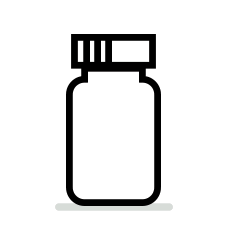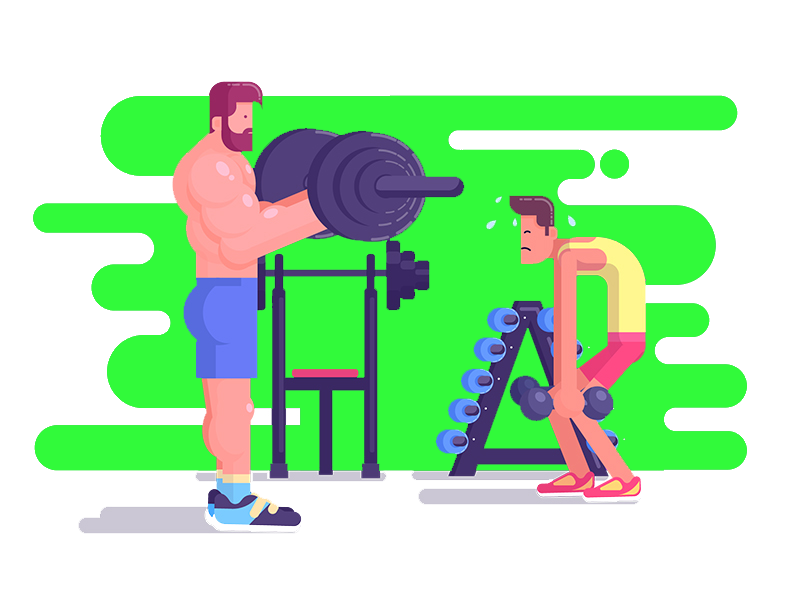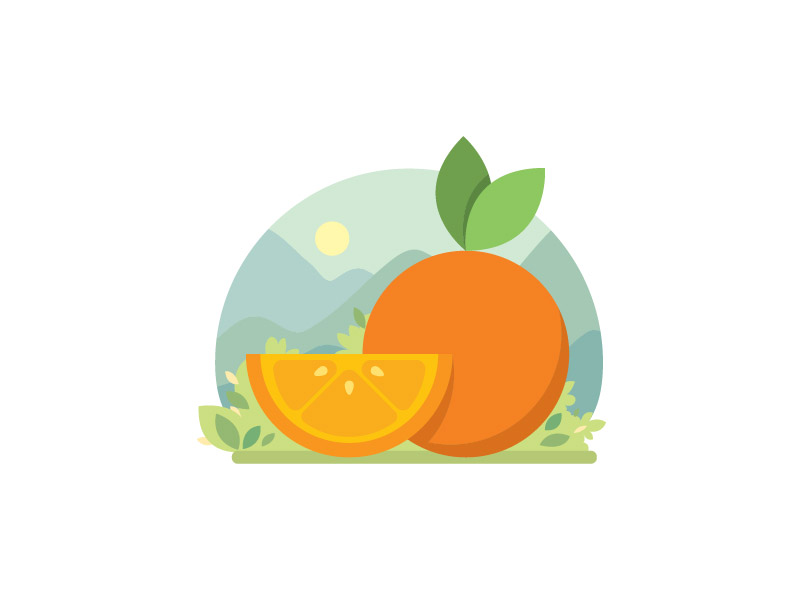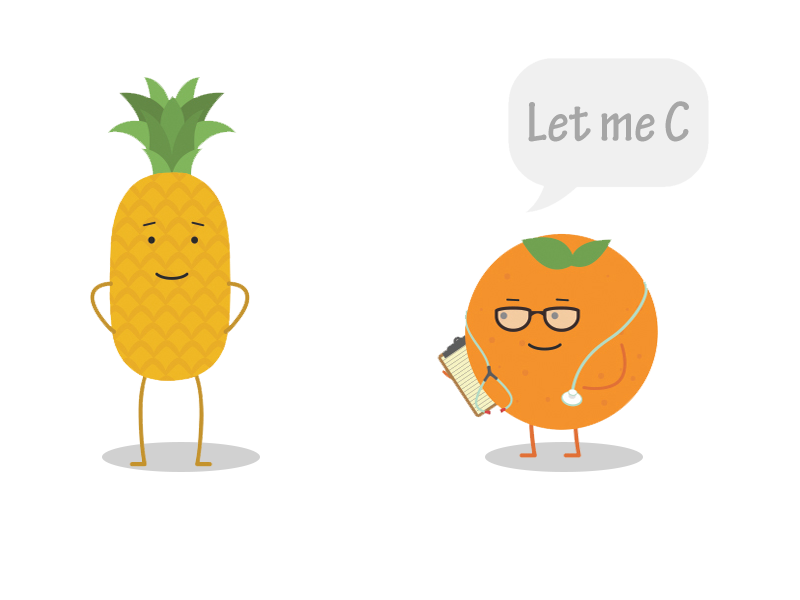Beginning
Why Do We Buy Vitamins
We need vitamins for normal body functions, mental alertness and resistance to infection. They enable our body to process proteins, carbohydrates and fats. Certain vitamins also help us produce blood cells, hormones, genetic material and chemicals in our nervous system.
Vitamins and minerals are substances our body needs in small amounts for normal growth, function and health. Together, vitamins and minerals are called micro-nutrients. Our body can’t make most micro-nutrients, so we must get them from the foods we eat or, in some cases, from supplements.
For instance, as we get older, our skin is less able to synthesize vitamin D, and we also may spend more time indoors. As a result, we may not get enough sun exposure to trigger synthesis of vitamin D, which assists in the absorption of calcium and promotes bone mineralization.
Bedsides that ,scientific evidence shows that some dietary supplements are beneficial for overall health and for managing some health conditions.For example, calcium and vitamin D are important for keeping bones strong and reducing bone loss.
Note : While vitamin supplements shouldn’t replace a healthy diet of varied foods, we can take them to complement our diet and boost our health.Having the right balance of vitamins and minerals in our
body is essential.
Vitamin and Mineral MVPs
What Is Vitamin and Mineral ?
Taking vitamins and minerals to supplement a healthy diet is much easier today than in prehistoric times. The only thing left for we to determine is which vitamins we should take to fulfill our body’s unique needs.
Vitamin A is a key contributor to strong eyesight, immune systems, and cell growth. It comes in two forms: retinoids, which come from animal products, and beta carotene, which is found in plants such as carrots, eggs, and apricots.
Vitamin B12 is essential for healthy brain function; as such, it can help prevent memory loss and boost both moods and immune systems. It can be found in eggs, milk, shellfish, and poultry.
Calcium fortifies bones and helps repair them if they’re damaged. There’s also evidence that calcium can help prevent high blood pressure. Besides its best-known presence in dairy products, calcium can also be found in leafy greens, seafood, and legumes.
Vitamin D helps the body absorb calcium and is associated with a reduced risk of heart disease and diabetes. Fish oils have the highest amount of vitamin D in food, and it also pops up in foods such as cheese and egg yolks.
Folate , a form of Vitamin B, can help prevent anemia. In women, folic acid (synthesized folate) can prevent certain birth defects. For men, folate can reduce the risk of heart disease. Folate can be found in dark leafy greens, citrus fruits, and avocado.
Vitamin E, found in vegetable oil, green leafy vegetables, and fortified cereals, helps build up immune systems and maintain healthy eyes and skin.
The Value of Vitamins
Understand Supplements for Specific Needs
Vitamin and mineral requirements for an individual depend on many factors, including the individual’s medical status, age, gender, body size, and activity level.
Well-Being Vitamin

Bone: Calcium supplements help strengthen bones; get one with extra vitamin D to help boost absorption.
Joints: Glucosamine and fish oil both help keep joints limber and can be used by everyone from athletes to older adults.
Digestive health: Probiotics, the so-called good bacteria, can help regulate digestive cycles and positively affect your mood better than amateur biotics ever could.
Cardiovascular health: Try fiber supplements, which can lower LDL (“bad cholesterol”) and increase HDL (“good cholesterol”).
Sleep: Valerian is a natural extract that can help you get to sleep and reduce symptoms of mild anxiety. Melatonin pills supplement your body’s natural melatonin reserves to help regulate your circadian rhythms.
Female libido: Zinc and compounds found in watermelon have been found to increase circulation, which can boost female arousal. Zinc can be found in pumpkin seeds, mushrooms, and oysters.
Male libido: Horny goat weed may help boost circulation and reduce symptoms of erectile dysfunction disorder.
Boost Vitamin
 Dehydration: Like sports drinks, coconut water contains electrolytes, which can help restore the body after a workout or during an illness. Coconut water, however, is natural, with less sugar, fewer calories, and far fewer football-star endorsements.
Energy: Extra B12 or CoQ10 (short for coenzyme Q10) helps support metabolism, which in turn can boost energy.
Focus and concentration: DHA, an omega-3 fatty acid found in fish, can help boost brain function. Ginkgo biloba has also been studied for its potential benefit to memory and cognitive speed.
Immune system: Vitamin C, one of the most commonly taken supplements, can help fortify your immune system against seasonal colds and other ills.
Dehydration: Like sports drinks, coconut water contains electrolytes, which can help restore the body after a workout or during an illness. Coconut water, however, is natural, with less sugar, fewer calories, and far fewer football-star endorsements.
Energy: Extra B12 or CoQ10 (short for coenzyme Q10) helps support metabolism, which in turn can boost energy.
Focus and concentration: DHA, an omega-3 fatty acid found in fish, can help boost brain function. Ginkgo biloba has also been studied for its potential benefit to memory and cognitive speed.
Immune system: Vitamin C, one of the most commonly taken supplements, can help fortify your immune system against seasonal colds and other ills.
Beauty
 Hair and nails: Biotin (also called vitamin H) may help prevent brittle nails and maintain your hair’s lustrous health.
Acne: Tea-tree oil has natural antibacterial properties that can help fight breakouts; just apply to your face with a cotton ball every evening.
Teeth: Try “oil pulling,” or swishing with coconut oil, to naturally whiten your chompers.
Weight loss: Some studies suggest that green-coffee-bean extract may help boost metabolic processes and speed weight loss.
Hair and nails: Biotin (also called vitamin H) may help prevent brittle nails and maintain your hair’s lustrous health.
Acne: Tea-tree oil has natural antibacterial properties that can help fight breakouts; just apply to your face with a cotton ball every evening.
Teeth: Try “oil pulling,” or swishing with coconut oil, to naturally whiten your chompers.
Weight loss: Some studies suggest that green-coffee-bean extract may help boost metabolic processes and speed weight loss.
Mood
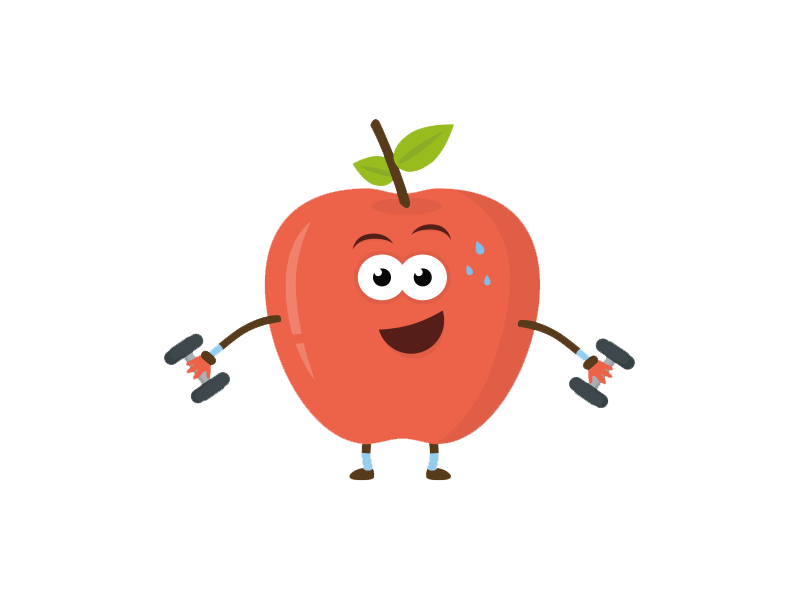 In general: Omega-3 fatty acids, commonly found in fish and fish-oil tablets, may help give your mood a lift. St. John’s wort may also help to lift spirits.
Anxiety: Magnesium can help alleviate mild anxiety, as can supplements with SAM-e. This compound is produced naturally in your body, but extra SAM-e can help boost serotonin levels and make you feel more at ease.
Seasonal affective disorder: Some studies have also suggested vitamin D is beneficial in staving off the wintertime blues. Vitamin D is primarily absorbed as sunlight, which isn’t as plentiful after the sun flies south for the winter.
Daily Values
In general: Omega-3 fatty acids, commonly found in fish and fish-oil tablets, may help give your mood a lift. St. John’s wort may also help to lift spirits.
Anxiety: Magnesium can help alleviate mild anxiety, as can supplements with SAM-e. This compound is produced naturally in your body, but extra SAM-e can help boost serotonin levels and make you feel more at ease.
Seasonal affective disorder: Some studies have also suggested vitamin D is beneficial in staving off the wintertime blues. Vitamin D is primarily absorbed as sunlight, which isn’t as plentiful after the sun flies south for the winter.
Daily Values
Vitamins & Minerals:How Much Do I Need?
If you decide to use a supplement, look for one that doesn’t exceed the Daily Value (DV) for each vitamin and mineral. The following chart shows the DVs that we need based on our age.
|
Vitamin
or Mineral
|
Recommended Dietary Allowance (RDA) or Adequate Intake (AI)
Nutrients with AIs are marked with an (*)
|
Upper Tolerable Limit (UL)
The highest amount you can take without risk
|
|
Boron
|
Not determined.
|
20 mg/day
|
|
Calcium
|
-
Age 1-3: 700 mg/day
-
Age 4-8: 1,000 mg/day
-
Age 9-18: 1,300 mg/day
-
Age 19-50: 1,000 mg/day
-
Women age 51+: 1,200 mg/day
-
Men age 71+: 1,200 mg/day
|
-
Age19-50: 2,500 mg/day
-
Age 51 and up:2,000 mg/day
|
|
Chloride
|
-
Age 19-50: 2,300 mg/day
-
Age 50-70: 2,000 mg/day
-
Age 70 and older: 1,800 mg/day
|
3,600 mg/day
|
|
Choline
(Vitamin B complex)
|
-
Age 70 and older: 1,800 mg/day
-
Women: 425 mg/day *
|
3,500 mg/day
|
|
Copper
|
900 micrograms/day
|
10,000 micrograms/day
|
|
Fluoride
|
-
Men: 4 mg/day *
-
Women: 3 mg/day *
|
10 mg/day
|
|
Folic Acid (Folate)
|
400 micrograms/day
|
1,000 micrograms/day
This applies only to synthetic folic acid in supplements or fortified foods. There is no upper limit for folic acid from natural sources.
|
|
Iodine
|
150 micrograms/day
|
1,100 micrograms/day
|
|
Iron
|
-
Men: 8 mg/day
-
Women age 19-50: 18 mg/day
-
Women age 51 and up: 8 mg/day
|
45 mg/day
|
|
Magnesium
|
-
Men age 19-30: 400 mg/day
-
Men age 31 and up: 420 mg/day
-
Women age 19-30: 310 mg/day
-
Women age 31 and up: 320 mg/day
|
350 mg/day
This applies only to magnesium in supplements or fortified foods. There is no upper limit for magnesium in food and water.
|
|
Manganese
|
-
Men: 2.3 mg/day *
-
Women: 1.8 mg/day*
|
11 mg/day
|
|
Molybdenum
|
45 micrograms/day |
2,000 micrograms/day
|
|
Nickel
|
Not determined
|
1.0 mg/day
|
|
Phosphorus
|
700 mg/day |
Up to age 70: 4,000 mg/day Over age 70: 3,000 mg/day
|
|
Selenium
|
55 micrograms/day
|
400 micrograms/day
|
|
Sodium
|
-
Age 19-50: 1,500 mg/day
-
Age 51-70: 1,300 mg/day
-
Age 71 and up: 1,200 mg/day
|
2,300 mg/day
|
|
Vanadium
|
Not determined
|
1.8 mg/day
|
|
Vitamin A
|
-
Men: 3,000 IU/day
-
Women: 2,310 IU/day
|
10,000 IU/day
|
|
Vitamin B3 (Niacin)
|
-
Men: 16 mg/day
-
Women: 14 mg/day
|
35 mg/day
This applies only to niacin in supplements or fortified foods. There is no upper limit for niacin in natural sources.
|
|
Vitamin B6
|
-
Men age 19-50: 1.3 mg/day
-
Men age 51 up:1.7 mg/day
-
Women age 19-50: 1.3 mg/day
-
Women age 51 up: 1.5 mg/day
|
100 mg/day
|
|
Vitamin C
|
-
Men: 90 mg/day
-
Women: 75 mg/day
|
2,000 mg/day
|
|
Vitamin D (Calciferol)
|
-
Age 1-70: 15 micrograms/day
(600 IU, or international units) *
-
Age 70 and older: 20 micrograms/day
(800 IU) *
|
100 micrograms/day
(4,000 IU)
|
|
Vitamin E
(alpha-tocopherol)
|
22.4 IU/day |
1,500 IU/day
This applies only to vitamin E in supplements or fortified foods. There is no upper limit for vitamin E from natural sources.
|
|
Zinc
|
-
Men: 11 mg/day
-
Women: 8 mg/day
|
40 mg/day
|
Making Vegan Easy
Vitamin B12
If you research Vitamin B12 online, you will likely encounter a massive amount of incorrect and potentially dangerous information. The following is what you need to know.
The only vegan foods that reliably contain significant amounts of B12 are foods that have been fortified with lab-cultured B12. And because people vary greatly in their ability to absorb B12, it’s quite possible to be low or deficient even if you consume 100 percent of the U.S. RDA every day. We therefore recommend that everyone get their blood tested occasionally, and adjust their supplement regimen if B12 levels fall below 500 pg/mL. Some people, particularly people over age 60, absorb B12 so poorly that regular B12 injections are prudent.
B12 deficiencies cause a host of health problems, including potentially irreversible nerve damage that can occur before symptoms are noticed. The easiest way for most people to avoid a deficiency is to take a B12 supplement containing at least 1000 micrograms of B12 two or three times a week. These supplements generally come in lozenge form, and you should let them sit under your tongue to dissolve—the B12 will be absorbed by your mouth’s capillaries more efficiently than if you swallowed the lozenge. While side effects are rare, consult your physician before taking more than about 7,000 micrograms of B12 per week.
There are two different B12 molecules used by the supplement industry: cyanocobalamin and methylcobalamin. Some people are adamant that methylcobalamin is best, but clinical evidence currently leans toward cyanocobalamin being the better choice (although either molecule will probably be fine). We recommend either Nature’s Bounty B-12 or NOW Foods B-12 Lozenges, since they seem to offer the biggest bang for the buck in terms of cyanocobalamin dosage and number of tablets. With either of these products, most vegans can cover their B12 needs by taking one lozenge every two to three days.
Making Vegan Easy
Calcium
Most brands of soy or almond milk contain more calcium than cows’ milk—of course you’ll want to check the label to confirm your favorite brand packs a sufficient dose of calcium.
Drinking these products daily and regularly eating tofu prepared with calcium sulfate can go a long way towards ensuring adequate calcium intake. Kale is another excellent source of calcium, and it’s packed with other important nutrients too. Beans vary widely in the amount of calcium they contain, with soybeans and white beans offering the most.
If you don’t consume much calcium-rich vegan milk, beans, greens, or tofu, it can be hard to meet the US RDA of 1000 milligrams per day. Anyone coming up short on calcium can turn to a vegan supplement. Some calcium supplements are made from oyster shells, and are therefore not vegan. And many brands either contain lanolin-derived vitamin D, or they come in gelatin capsules or as tablets with non-vegan coatings.
But you’re not at all out of luck if you decide to supplement. Perhaps the best choice is Deva’s Vegan Calcium with Magnesium. Each tablet gives you about a third of your RDA for calcium, so it’s a convenient way to close the gap if you’re not quite meeting your RDA through your daily food choices. Plus, this brand includes vegan vitamin D, which can aid calcium absorption.
Body Building
Protein Powders
If you go to a gym, you’ve probably seen most of the guys by the weight machines talking about the protein shakes they drink after a workout.
In very specific circumstances, protein powders can be useful. “They’re an easy and convenient source of complete, high-quality protein,” says Carole Conn, PhD, associate professor of nutrition at the University of New Mexico. But remember: Most people, even athletes, can also get everything they offer by eating sources of lean protein like meat, fish, chicken, and dairy products.
So when might you want to use them? There are a few reasons why an ordinary athlete might want more protein in his or her diet, says Barbara Lewin, a dietitian and sports nutritionist who has worked with NFL, NBA, and NHL athletes and trained Ironman competitors:
When you’re growing. A teenager needs more protein to fuel his workouts because his body is still growing and uses more protein in general.
When you’re starting a program. If working out is new to you and you’re trying to build muscle, you’ll require more protein than you normally would.
When you’re amping up your workouts. If you normally work out for half an hour a few times a week, but now you’ve decide to train for a half-marathon, your body will need more protein.
When you’re recovering from an injury. Athletes with sports injuries frequently need more protein to help them heal.
If you’re going vegan. People who pursue a vegan or vegetarian lifestyle eliminate a number of common protein sources from their diet, including meat, chicken, and fish, and sometimes dairy and eggs as well.
Although it’s certainly possible to consume sufficient protein on a vegan diet without resorting to supplements, many vegans find protein powder of great value. It provides a convenient, digestible, and affordable way to ensure you’re not falling short of this key nutrient.
As a general rule, some of the hardest-to-digest vegan foods are those that are richest in protein: particularly beans and wheat gluten. So vegan protein powder makes a great alternative—just one scoop of most brands provides nearly the amount of protein as an entire 16-ounce can of beans!
Adults should consume, on a daily basis, about one gram of protein per kilogram of body weight. On top of this, much of this protein should come from lysine-rich foods like beans, nuts, seeds, and quinoa. One way to help ensure you’re getting enough protein is to get into the habit of choosing meals that contain at least one protein-rich item. If, for whatever reason, you find you’re still coming up short on protein—or you don’t eat many lysine-rich foods—a vegan protein powder is a great way to make up the difference.
Amazon’s got several good brands of vegan protein powder. Our favorite is Orgain Organic Protein Powder in vanilla or chocolate. Orgain’s protein powder is made from the same high-quality organic ingredients found in premium brands costing twice the price, and it also packs in some omega-3s thanks to organic chia seeds. If you decide to give protein powder a try, we highly recommend also buying a 16-ounce shaker cup.
A Must Have
Vitamin D
Vitamin D isn’t just the most important supplement – it is possibly the most important biohack.
Vitamin D is primarily obtained in three ways: by exposing your skin to direct sunlight, through drinking fortified milks (vegan or cow’s), or through supplements. It’s not a vitamin that appears naturally in unfortified foods, and most people in temperate climates will not receive adequate sunlight exposure in winter months to ensure sufficient vitamin D levels. So a supplement can be a great way to obtain sufficient vitamin D.
Many (but not all!)brands of soy or almond milk contain D3 so it’s possible to meet your needs by drinking a couple glasses of these products a day.
Until very recently it was impossible to buy a vegan version of Vitamin D made with the most common Vitamin D molecule (D3). But in just the past few years, several vegan D3 brands have come to market. Doctor’s Best Vegan D3 is the most economical product we have found, and it comes in easy-to-swallow vegan capsules.
Buying Guide
Omega-3 and DHA
5 min read
There’s good reason to include Omega-3 fats in your diet.
Most people know that these fats are abundant in cold-water fish, but they are also a few rich sources of this fat that are vegan: walnuts, chia seeds, flax, and to a lesser extent hemp and pumpkin seeds. Of these, walnuts and chia are probably the most convenient sources. You can significantly raise your Omega-3 consumption by eating a dozen or so walnut halves a day. And there are numerous vegan recipes that include chia seeds. Adding a tablespoon of chia to your smoothies is probably the easiest way to include this food in your diet. Organic raw chia seeds are inexpensive and available from Amazon.com.
Even if you’re getting plenty of Omega-3s, your body may not be properly converting these fats to provide sufficient levels of DHA and EPA. Fortunately, there are several DHA/EPA supplements on the market. Of all supplements of special interest to vegans, these are probably the most expensive. That’s because the vegan brands are algae-derived, rather than being derived from fish. But not only are they more humane, because they’re lower on the food chain they’re less subject to contamination.
Hands down the cheapest vegan DHA/EPA that we’ve found (measured by capsules and dosage), is Nature Made Omega 3 Vegetarian Softgels. It’s best to order this during cooler months so it’s not subjected to heat during shipment. Keep this product in your refrigerator to guard against spoilage.
Buying Guide
Multivitamins
2 min read
If you follow a well-planned vegan diet, chances are you’re getting abundant amounts of most of the nutrients that a multivitamin provides.
But a few nutrients may fall through the cracks. So a vegan multivitamin can help to ensure that your vegan diet doesn’t come up short. Zinc and iodine in particular are hard to obtain in sufficient amounts through vegan sources, so for many vegans these two nutrients are reason enough to choose a multivitamin.
All multivitamins contain B12. But keep in mind that relying on a multivitamin to completely cover your B12 needs may not do the trick, as many people won’t absorb sufficient amounts from a daily tablet containing 100 percent of the US RDA.
Don’t buy a multivitamin that contains iron unless your doctor recommends it based on blood work, since taking in too much iron can be as hazardous as taking too little.
Deva’s Vegan Multivitamin is a solid and cost-effective choice.



